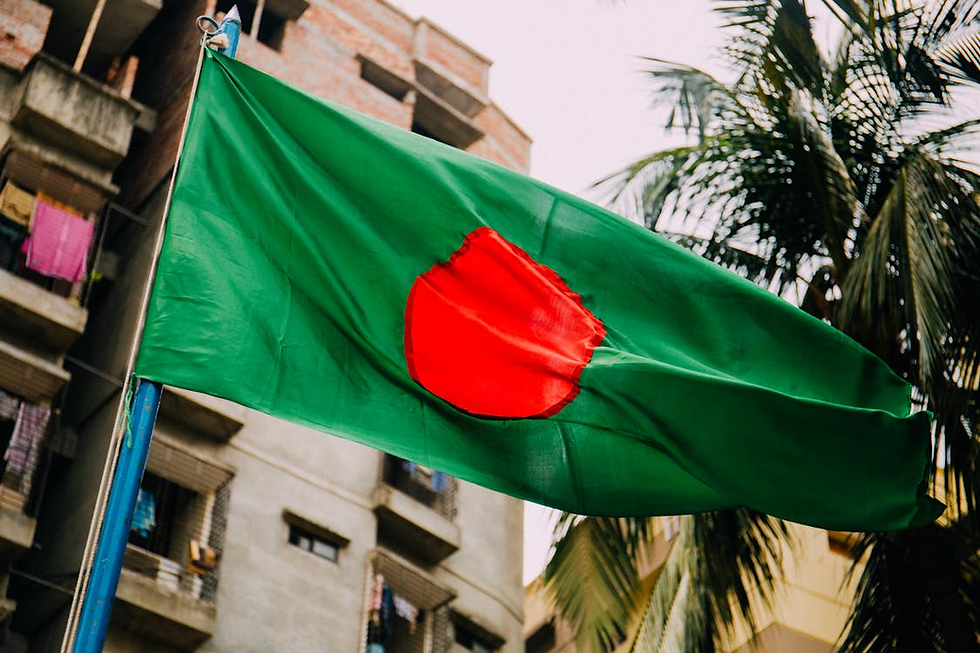South Korea's First Transgender Soldier Found Dead
- Nur Sa’adah Batrisyia

- Mar 10, 2021
- 4 min read
Updated: Dec 23, 2024
Content warning: This article contains references transphobia and suicide.
"The death of both LGBTQ people is not suicide, but a social killing that denies even the space to breathe for the minorities." — Jogye Order of Korean Buddhism
A transgender South Korean soldier was found dead at her house in Cheongju on the 4th of March, just over a year after she was discharged from the military for going through sex reassignment surgery. Her death is being treated as a suicide; the event has aroused public anger and debate.

Byun Hee-Soo, 23 years old, was a former staff sergeant. In 2017, she voluntarily enlisted into the army. In 2019, she received gender reassignment surgery in Thailand while on military leave. She requested to continue to serve as a female, despite the fact only men can serve in the army. On 22 January, the South Korean Army decided to discharge her, arguing that “the staff sergeant is unqualified to continue serving”.
The National Human Rights Commission of Korea (NHRCK) had previously intervened in this matter, and had urged the Army Chief of Staff to postpone the military commission review. “We have recommended to the army chief of staff that the inquiry, which was supposed to begin on Wednesday, be delayed by three months in compliance with inquiry rules and regulations regarding human rights violations and discriminatory acts,” the commission stated. Nevertheless, the army refused.
It was reported that Byun Hee-Soo’s gender dysphoria and mental health problems resulted in depression and emotional suffering. Knowing this, the military doctors recommended that she should undergo the surgery. She said: “It was an extremely difficult decision to let my base know of my identity, but once I did, I felt much better.”
She also expressed: “I thought I would finish serving in the army and then go through the transition surgery and then re-enter the army as a female soldier. But my depression got too severe.”
Her new identity was revealed through a mandatory military medical assessment, in which the military discovered she lacked male genitalia. By citing her condition as a mental impairment and physical handicap, the military had referred her to a discharge evaluation, allegedly “to avoid unfair treatment and discrimination”. Even though the request to intervene made by the Center for Military Human Rights Korea (CMHRK) and NHRCK was successful, the military still proceeded with the discharge.
“We hope the army won’t stain its reputation by chasing away a transgender woman simply because she lacks the male sexual organ.” NHRCK said.
Lim Tae-Hoon from CMHRK further opined that the sudden discharge announcement was unexpected, commenting that it should be effective after more than three months.
Her death has added fuel to activists' and civil rights groups’ efforts to enact an anti-discrimination law. For the past 14 years, various attempts to pass the bill were unsuccessful, predominantly because of strong opposition from the Christian community. This anti-discrimination law would ensure equal rights for all - regardless of gender, race, ethnicity, and religion.
Journalist Raphael Rashid accused those opposed to the law of having a homophobic mentality: a way of thinking that, he claims, allegedly influenced the government’s decision-making. One Christian group previously compared the LGBTQ+ community to Nazism, while others claim LGBTQ+ relationships could lead to the downfall of South Korea, given the low birth rate.
Without this law, South Korea will also continue to struggle with xenophobia. The Korea Herald has previously reported various acts of discrimination, such as when “a Muslim woman had her hijab forcibly taken off by a stranger on the street.” In a separate event, a Chinese student was faced with insensitive remarks while doing her master’s degree; she was accused of only studying at university to find a husband.
The discrimination faced by various minority groups makes it difficult to live comfortably in South Korea. Discrimination against the LGBTQ community, specifically transgender people, is particularly widespread. In a survey conducted by the NHRCK, 65.3% out of 588 transgender respondents reportedly encountered discrimination because of their identity. 97.1% of respondents had faced hate speech on the internet.

In a separate incident, a South Korean YouTube star reportedly tried to rent a new house, however the owner cancelled the contract upon learning that she was transgender.
In 2019, South Korean politicians attempted to remove protections for LGBTQ+ individuals from the National Human Rights Commission of Korea Act. 40 lawmakers (about 20% of parliament) signed the bill, which was introduced by a party that has repeatedly been accused of xenophobia. Some members of the ruling Democratic Party of Korea also offered their support for this movement.
"Korean society is producing prejudice and hatred to the extent that it is harsh to LGBTQ people. This world, which does not accept existence as being, must stop now. The world in which the power is making justice and equality must disappear." — CEO of JB Financial Group
Activists are hoping that Byun Hee-Soo’s death will serve as the turning point to change traditionalist mentalities.

_edited.png)



Comments